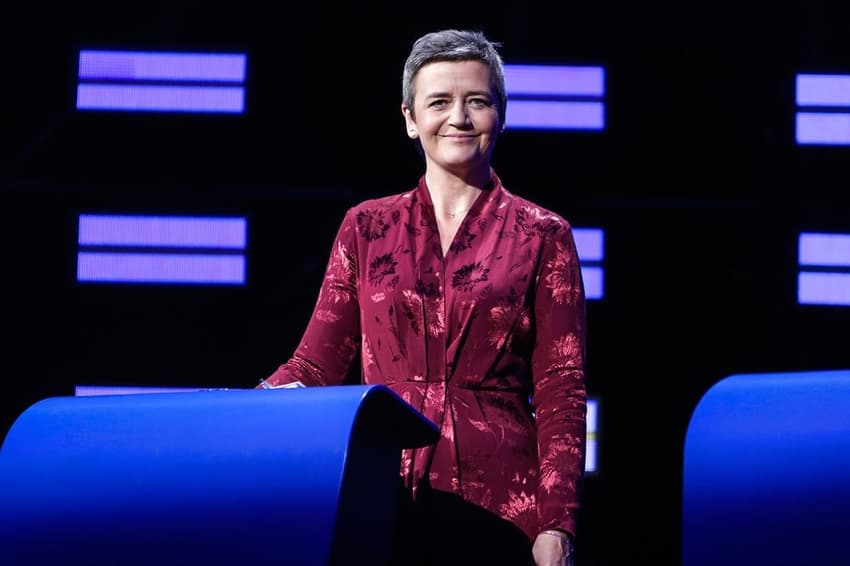Denmark's Vestager reappointed EU competition commissioner

Denmark's Margrethe Vestager was on Tuesday named as competition chief in the new European Commission, retaining the role she has held for the last five years in which she has clashed repeatedly with US tech giants.
The hard-charging former Danish minister for economics and the interior gets a beefed-up remit under new commission President Ursula von der Leyen, as vice-president charged with building "a Europe fit for the digital age".
In addition to continuing as competition commissioner, Vestager, a former leader of the Danish Social Liberal party, becomes deputy chair of the commission’s digital section.
During her time as competition chief, the Danish politician has issued huge fines to American IT giants including Google.
“It’s more than six months since I said I wanted to be competition commissioner again. At the time, people said ‘no, that can’t work’. But right now, things work,” she told Danish broadcaster DR.
Vestager, who had been in the running to succeed Jean-Claude Juncker as president of the commission, also said that she was “very very humbled” to be given added responsibility for digital issues.
The European Parliament must approve the commissioner team presented by Von der Leyen on Tuesday. Candidates are to attend hearings at the parliament, which will then vote on whether to approve the commission as a whole.
Although candidates are often switched before final approval of the commission, Vestager passed the hearing stage without any problem when she was last nominated to the commission in 2014.
The European Commission’s power comes from its status as the only body which can propose new EU laws. That can occur at its own initiative or at the request of member states, MEPs or national parliaments. The European parliament then negotiates proposed laws with EU ministers from member states.
The Commission is also responsible for ensuring member states adhere to EU rules. It includes commissioners from each of the union’s member countries.
READ ALSO: Angry Apple takes swipe at ‘Dane of the Year' Vestager
Comments
See Also
The hard-charging former Danish minister for economics and the interior gets a beefed-up remit under new commission President Ursula von der Leyen, as vice-president charged with building "a Europe fit for the digital age".
In addition to continuing as competition commissioner, Vestager, a former leader of the Danish Social Liberal party, becomes deputy chair of the commission’s digital section.
During her time as competition chief, the Danish politician has issued huge fines to American IT giants including Google.
“It’s more than six months since I said I wanted to be competition commissioner again. At the time, people said ‘no, that can’t work’. But right now, things work,” she told Danish broadcaster DR.
Vestager, who had been in the running to succeed Jean-Claude Juncker as president of the commission, also said that she was “very very humbled” to be given added responsibility for digital issues.
The European Parliament must approve the commissioner team presented by Von der Leyen on Tuesday. Candidates are to attend hearings at the parliament, which will then vote on whether to approve the commission as a whole.
Although candidates are often switched before final approval of the commission, Vestager passed the hearing stage without any problem when she was last nominated to the commission in 2014.
The European Commission’s power comes from its status as the only body which can propose new EU laws. That can occur at its own initiative or at the request of member states, MEPs or national parliaments. The European parliament then negotiates proposed laws with EU ministers from member states.
The Commission is also responsible for ensuring member states adhere to EU rules. It includes commissioners from each of the union’s member countries.
READ ALSO: Angry Apple takes swipe at ‘Dane of the Year' Vestager
Join the conversation in our comments section below. Share your own views and experience and if you have a question or suggestion for our journalists then email us at [email protected].
Please keep comments civil, constructive and on topic – and make sure to read our terms of use before getting involved.
Please log in here to leave a comment.